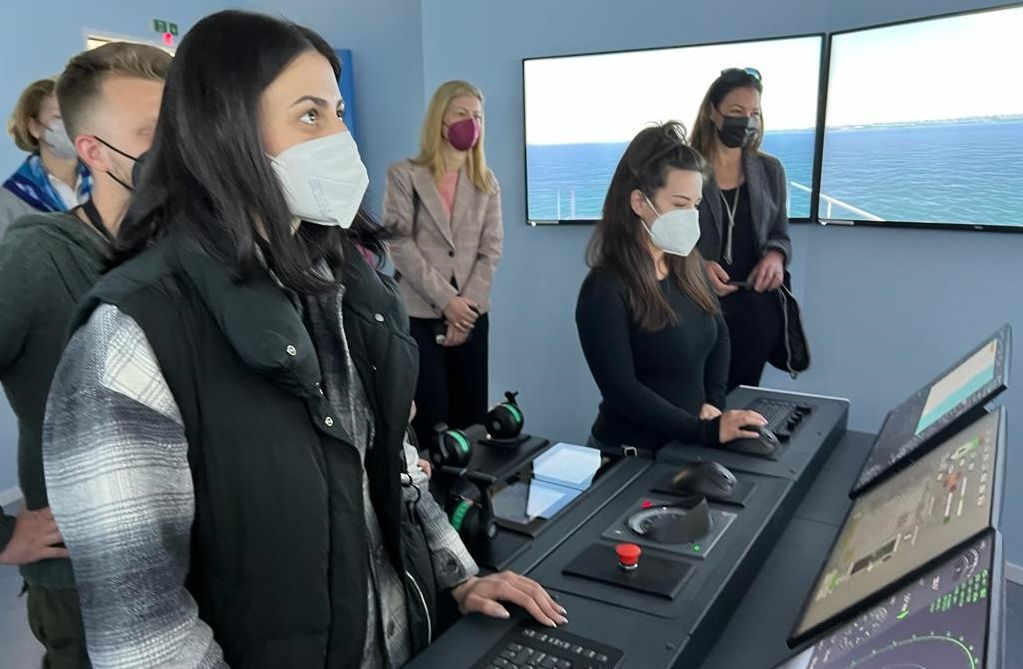
(www.MaritimeCyprus.com) As technology advances and the shipping industry looks at how it can decarbonise effectively, we hear a lot about "future-proof" solutions. However, in order to truly future-proof the industry we need to understand the needs of seafarers and shore-based staff today so we can effectively invest in the next generation - the industry’s future leaders.
The shipping industry is one of the oldest industries in the world and its vast range of shore-based and at-sea job roles offer a huge variety of career opportunities. However, a global labour shortage means that there is strong competition from other industries for new talent.
To attract that talent, we first need to understand what motivates the next generation. Deloitte’s 2022 Gen Z and Millennial Survey provides some interesting insights. In uncertain times, the survey puts cost of living and climate change as top current concerns overall.
Where selecting an employer is concerned, work/life balance and learning/development opportunities are the top criteria, closely followed by salary and benefits. However, diversity and inclusion, and the societal and environmental impact of organisations were also shown to be key factors when it came to retention; many respondents said they would turn down a job if it failed to align with their personal values.

Developing Future Leaders
To attract the next generation of leaders, shipping would therefore be well advised to redouble efforts to collaborate with educational institutes so that training and career development paths reflect today’s priorities.
The work WISTA does to support women in shipping is relevant here as it facilitates Continuous Professional Development and encourages training courses which help equip women and others with the skills they need to progress in their careers.
WISTA Hellas, for example, is working closely with prominent educational institutes and offers full and part-time scholarships which are available to any woman working in the maritime industry. Courses of note include the ALBA Graduate Business School’s MBA in Shipping, an MSc in Logistics and Supply Chain Management from the BCA College and the University of Piraeus’ MSC in Ship Management. We have also partnered with the ALBA Graduate Business School to provide a Leadership Programme specifically for women in maritime.
At an international level, WISTA International and the Institute of Chartered Shipbrokers (ICS) offer five scholarships each year for the Institute’s Foundation Diploma, and last year WISTA International launched the Maritime ShEO Leadership Accelerator Programme in partnership with the IMO. The Accelerator Programme provides women with the management knowledge and skills they need to progress into leadership positions while also creating visible role models within the industry.
There are also several other initiatives designed to encourage students and young maritime professionals. For instance, in Greece, the Young Executive Shipping (YES) Forum provides a platform for open dialogue between the industry, students and young professionals to bridge the generational gap and to share knowledge and experience. Again, Isalos organises a range of industry events to promote opportunities in the maritime industry in addition to hosting an online careers platform for cadets.
Others are also responding: the Maritime Port Authority in Singapore recently appointed 18 students to be the first MaritimeSG Youth Ambassadors; and the City of Rotterdam has established a Young Maritime Board to participate in the Rotterdam Maritime Capital of Europe programme.
Addressing Recruitment Challenges
In the more immediate term, we need to look no further than recent experience to understand other, underlying issues.
The 2021 BIMCO/ICS Seafarer Workforce Report predicted that by 2026, there will be a need for almost 90,000 additional STCW certified officers as demand for seafarers to operate the world’s merchant fleet continues to outstrip demand. The situation was surely exacerbated by Covid-19, which exposed or highlighted unappealing aspects of the career at sea.
For example, work/life balance, crew connectivity, security on-board and differing legal systems around the world are just some of the challenges faced by seafarers which can have a negative impact on job satisfaction or crew retention.
As an industry, we need to find solutions to provide seafarers with greater support such as implementing work patterns that increase shore leave; investing in policies and processes which promote greater diversity and inclusion by creating the right environment onboard for everyone; ensuring existing crew receive training and can upskill as new technologies are introduced; and ensuring a safe and secure working environment for all.
Digitalisation and New Technologies
Finally, the introduction of new technologies should also create new roles which are more in tune with the skill sets of the younger generation, making the industry a more attractive option, particularly when digital solutions are being used to address issues such as decarbonisation.
The demand for digital skills within the global workforce will only continue to increase and we can see this being translated in school curriculums where there is a greater focus on STEM subjects and the introduction of computer coding at primary levels of education.
Digitalisation also provides a level playing field: going forward, my prediction is that more women will be recruited into maritime technology roles, where both men and women are equally qualified to embark on such a career.
We have an ambitious and tech-savvy cohort of young professionals with a desire to make a difference within our reach. But as an industry we must act; together we have a responsibility to raise awareness of the array of opportunities on offer within shipping and to actively engage with the next generation to secure a sustainable future for the industry.
Source: Elpi Petraki, President WISTA Hellas













